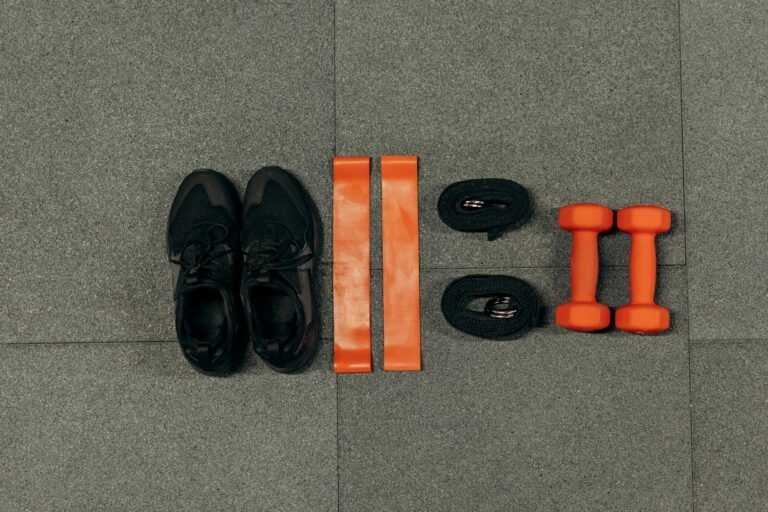The Need for Speed: How to Lose Weight Fast and Maintain Your Health
Understanding Weight Loss
Before embarking on a weight loss journey, it’s important to have a clear understanding of the factors that affect weight loss and how to set realistic goals.
Factors Affecting Weight Loss
Weight loss is influenced by various factors, including:
- Caloric Intake: Consuming fewer calories than your body needs can create a calorie deficit, leading to weight loss. However, it’s important to strike a balance and ensure you still meet your nutritional needs.
- Physical Activity: Regular exercise and physical activity play a crucial role in weight loss. Engaging in activities that increase your heart rate and burn calories can help create a calorie deficit.
- Metabolism: Each individual has a unique metabolism, which affects how efficiently their body burns calories. Factors such as age, genetics, and body composition can influence metabolic rate.
- Lifestyle Factors: Sleep patterns, stress levels, and overall lifestyle choices can impact weight loss. Adequate sleep and stress management are important for maintaining a healthy weight.
By understanding these factors, you can make informed decisions when choosing weight loss strategies and setting realistic goals.
Setting Realistic Goals
Setting realistic weight loss goals is essential for long-term success. Here are some key considerations:
- Healthy Rate of Weight Loss: Aim for a gradual and sustainable weight loss of 1-2 pounds per week. Rapid weight loss may be challenging to maintain and could potentially lead to muscle loss or nutrient deficiencies.
- Individual Factors: Consider your current weight, overall health, and lifestyle when setting goals. Consult with a healthcare professional or registered dietitian for personalized guidance.
- Behavioral Changes: Instead of focusing solely on the number on the scale, shift your focus to adopting healthy habits. This includes making nutritious food choices, being physically active, and managing stress effectively.
- Long-Term Maintenance: Plan for strategies that can be maintained in the long run. Sustainable weight loss involves making lifestyle changes rather than relying on quick fixes or fad diets.
Remember, weight loss is a journey that requires commitment, patience, and a holistic approach. It’s important to consult with healthcare professionals or registered dietitians who can provide personalized guidance based on your unique circumstances. For more information on weight loss strategies and techniques, you can explore weight loss supplements, weight loss programs, weight loss meal plans, and best exercises for weight loss.
Strategies for Fast Weight Loss
When it comes to achieving fast weight loss, a combination of healthy eating habits and regular physical activity is key. By implementing these strategies, you can jumpstart your weight loss journey in a safe and sustainable manner.
Healthy Eating Habits
Adopting healthy eating habits plays a crucial role in fast weight loss. Here are some strategies to consider:
- Calorie Deficit: Create a calorie deficit by consuming fewer calories than you expend. This can be achieved by monitoring your daily caloric intake and making mindful food choices. Focus on nutrient-dense, whole foods and limit the consumption of processed and high-calorie foods.
- Balanced Diet: Ensure that your diet includes a variety of food groups such as fruits, vegetables, lean proteins, whole grains, and healthy fats. These provide essential nutrients while keeping you satisfied.
- Portion Control: Be mindful of portion sizes to avoid overeating. Use smaller plates and bowls, and listen to your body’s signals of hunger and fullness.
- Meal Planning: Plan your meals in advance to avoid impulsive food choices. This allows you to make healthier options readily available and reduces the likelihood of relying on convenient, but less nutritious, options.
- Hydration: Stay hydrated by drinking an adequate amount of water throughout the day. Water not only helps to keep you hydrated but can also contribute to a feeling of fullness, aiding in portion control.
Remember, it’s important to consult with a healthcare professional or registered dietitian before making any significant changes to your diet. They can provide personalized guidance and ensure that you are meeting your nutritional needs during your weight loss journey.
Regular Physical Activity
In addition to healthy eating habits, regular physical activity is essential for fast weight loss. Engaging in exercise helps to increase calorie expenditure, build lean muscle mass, and improve overall fitness. Here are some strategies to consider:
- Cardiovascular Exercise: Incorporate aerobic exercises into your routine, such as brisk walking, jogging, cycling, or swimming. Aim for at least 150 minutes of moderate-intensity aerobic activity or 75 minutes of vigorous-intensity aerobic activity per week.
- Strength Training: Include strength training exercises to build muscle and boost metabolism. This can involve using resistance bands, free weights, or bodyweight exercises. Aim for two or more days of strength training per week, targeting major muscle groups.
- High-Intensity Interval Training (HIIT): Consider adding HIIT workouts to your routine. These involve short bursts of intense exercise followed by brief recovery periods. HIIT can help to maximize calorie burn in a shorter amount of time.
- Physical Activity Throughout the Day: Find opportunities to be active throughout the day, even outside of structured exercise sessions. Take the stairs instead of the elevator, go for a walk during lunch breaks, or engage in active hobbies such as gardening or dancing.
Remember to start gradually and listen to your body. If you have any underlying health conditions or concerns, consult with a healthcare professional before starting a new exercise regimen.
By adopting healthy eating habits and incorporating regular physical activity into your routine, you can achieve fast weight loss while maintaining your overall health. Remember, sustainable weight loss is best achieved through a combination of healthy habits, and it’s important to focus on long-term lifestyle changes rather than quick fixes. If you need further guidance, consider seeking advice from professionals, such as registered dietitians or fitness trainers.
Maintaining Health While Losing Weight
When embarking on a weight loss journey, it’s essential to prioritize your health and well-being. Losing weight fast can be enticing, but it’s important to do so in a way that promotes balanced nutrition and overall health. In this section, we will explore the importance of balanced nutrition and the need to monitor your progress and make adjustments as necessary.
Importance of Balanced Nutrition
While the goal may be to lose weight quickly, it’s crucial to remember that crash diets and extreme restrictions are not sustainable or healthy in the long run. Instead, focus on incorporating balanced nutrition into your weight loss plan.
A balanced diet includes a variety of nutrient-rich foods such as fruits, vegetables, whole grains, lean proteins, and healthy fats. These foods provide essential vitamins, minerals, and antioxidants that support overall health and well-being. Additionally, they help to keep you feeling satisfied and energized throughout the day, which can aid in weight loss efforts.
To ensure you are obtaining the necessary nutrients while losing weight, consider consulting a registered dietitian or nutritionist. They can provide personalized guidance based on your specific needs and goals. They may also recommend incorporating weight loss meal plans that are tailored to your dietary preferences and requirements.
Monitoring Progress and Adjusting
While losing weight, it’s crucial to monitor your progress regularly. Tracking your progress can help you stay motivated and make adjustments as needed to continue moving toward your weight loss goals.
One effective way to track progress is by keeping a record of your food intake and physical activity. This can be done through a food diary or using a mobile app that allows you to log your meals and workouts. Monitoring your food intake helps you become more aware of your eating habits and identify areas for improvement.
In addition to tracking your diet, it’s important to monitor your weight and body measurements regularly. However, remember that weight is not the sole indicator of progress. Other metrics such as body measurements, changes in clothing size, and improvements in overall fitness levels can also be valuable indicators of progress.
Based on your progress, you may need to adjust your weight loss plan. This could involve modifying your calorie intake, adjusting your exercise routine, or seeking additional support from a weight loss program. By making appropriate adjustments, you can continue to make progress while maintaining your health and well-being.
Remember, sustainable weight loss is a journey that requires patience, consistency, and a focus on overall health. By prioritizing balanced nutrition and monitoring your progress, you can achieve your weight loss goals while maintaining good health for the long term.
Sustainable Weight Management
While fast weight loss can be enticing, it’s important to focus on long-term strategies that promote sustainable weight management. Building healthy habits and seeking professional guidance are key aspects of maintaining a healthy weight in the long run.
Building Long-Term Healthy Habits
To sustain weight loss and maintain a healthy weight, it’s crucial to establish long-term healthy habits. Here are some habits that can support your weight management journey:
- Balanced Diet: Adopting a balanced and nutritious diet is essential. Focus on consuming a variety of whole foods, such as fruits, vegetables, lean proteins, whole grains, and healthy fats. Avoid restrictive diets that may lead to nutrient deficiencies or an unhealthy relationship with food.
- Portion Control: Pay attention to portion sizes and practice mindful eating. By being aware of your hunger and fullness cues, you can avoid overeating and make healthier choices.
- Regular Physical Activity: Incorporate regular physical activity into your routine. Engage in activities you enjoy, such as walking, jogging, cycling, or dancing. Aim for at least 150 minutes of moderate-intensity aerobic activity per week, along with strength training exercises twice a week. For more information on effective exercises for weight loss, check out our article on best exercises for weight loss.
- Hydration: Drink plenty of water throughout the day to stay hydrated. Water helps support digestion, keeps you feeling full, and may even boost metabolism.
- Mindful Eating: Practice mindful eating by paying attention to your food choices, eating slowly, and savoring each bite. This can help you develop a healthier relationship with food and prevent overeating.
Seeking Professional Guidance
When it comes to sustainable weight management, seeking professional guidance can be highly beneficial. Here are some options to consider:
- Registered Dietitian Nutritionist: Consulting with a registered dietitian nutritionist can provide personalized guidance and support in developing a balanced meal plan that suits your individual needs. They can help you navigate through various dietary considerations and create a sustainable eating plan.
- Personal Trainer: Working with a certified personal trainer can help you develop an exercise routine tailored to your fitness level and weight loss goals. They can provide guidance on proper form, intensity, and progression to ensure safe and effective workouts.
- Weight Loss Programs: Joining a reputable weight loss program can provide structure, accountability, and education on sustainable weight management. These programs often incorporate a combination of dietary guidance, physical activity recommendations, and behavior modification strategies. However, it’s important to choose a program that focuses on long-term lifestyle changes rather than quick fixes.
Remember, sustainable weight management is a journey that requires patience, consistency, and dedication. By building healthy habits and seeking professional guidance, you can increase your chances of achieving and maintaining a healthy weight in the long term. For information on weight loss supplements, weight loss programs, and weight loss meal plans, visit our related articles.






